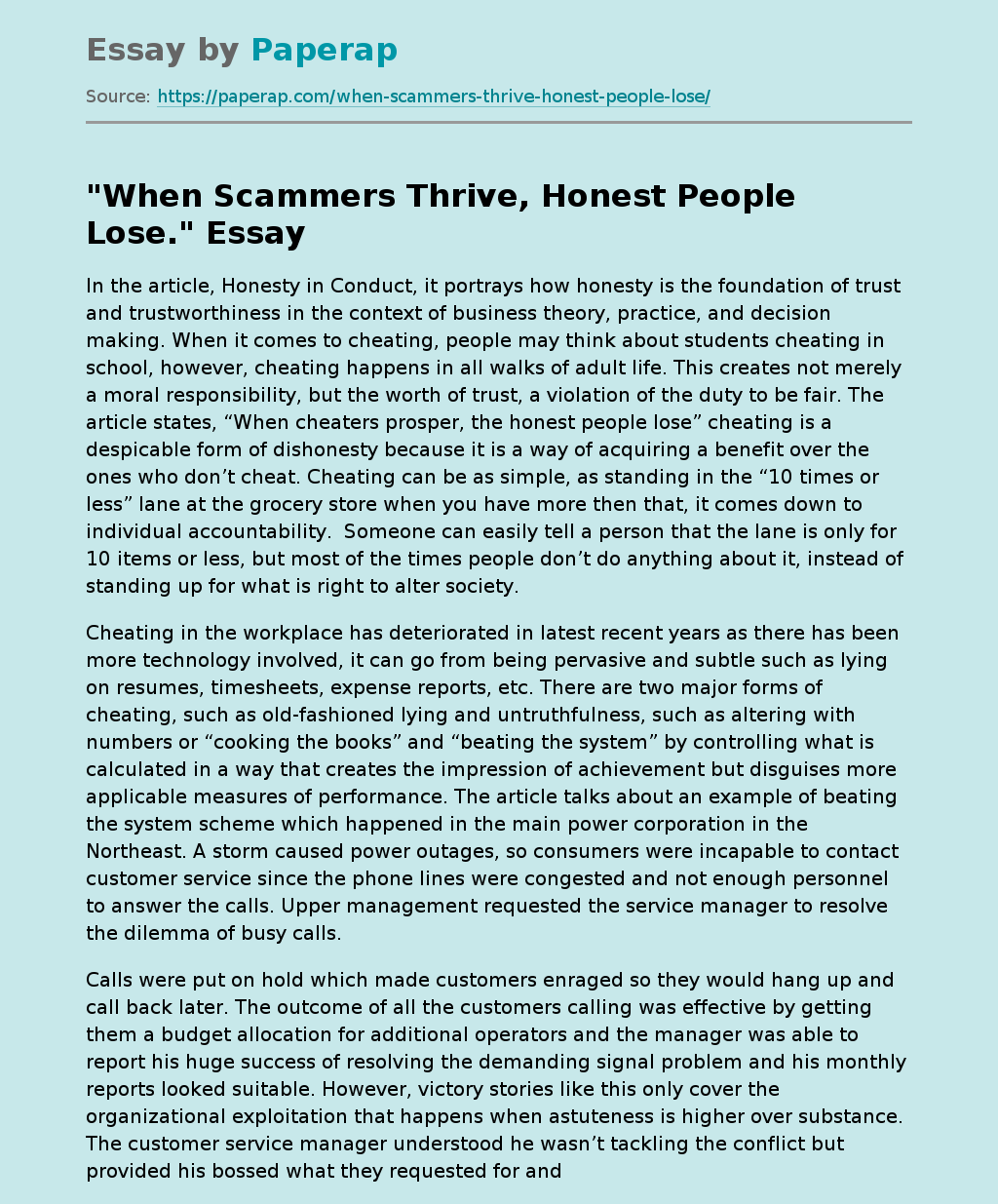"When Scammers Thrive, Honest People Lose."
In the article, Honesty in Conduct, it portrays how honesty is the foundation of trust and trustworthiness in the context of business theory, practice, and decision making. When it comes to cheating, people may think about students cheating in school, however, cheating happens in all walks of adult life. This creates not merely a moral responsibility, but the worth of trust, a violation of the duty to be fair. The article states, “When cheaters prosper, the honest people lose” cheating is a despicable form of dishonesty because it is a way of acquiring a benefit over the ones who don’t cheat.
Cheating can be as simple, as standing in the “10 times or less” lane at the grocery store when you have more then that, it comes down to individual accountability. Someone can easily tell a person that the lane is only for 10 items or less, but most of the times people don’t do anything about it, instead of standing up for what is right to alter society.
Cheating in the workplace has deteriorated in latest recent years as there has been more technology involved, it can go from being pervasive and subtle such as lying on resumes, timesheets, expense reports, etc. There are two major forms of cheating, such as old-fashioned lying and untruthfulness, such as altering with numbers or “cooking the books” and “beating the system” by controlling what is calculated in a way that creates the impression of achievement but disguises more applicable measures of performance. The article talks about an example of beating the system scheme which happened in the main power corporation in the Northeast.
A storm caused power outages, so consumers were incapable to contact customer service since the phone lines were congested and not enough personnel to answer the calls. Upper management requested the service manager to resolve the dilemma of busy calls.
Calls were put on hold which made customers enraged so they would hang up and call back later. The outcome of all the customers calling was effective by getting them a budget allocation for additional operators and the manager was able to report his huge success of resolving the demanding signal problem and his monthly reports looked suitable. However, victory stories like this only cover the organizational exploitation that happens when astuteness is higher over substance. The customer service manager understood he wasn’t tackling the conflict but provided his bossed what they requested for and by the organization’s internal standards, it seemed like the manager had been successful in fixing the busy signals. Lying, misleading, and distorting are all facts of dishonesty, everyone involved with a given enterprise has accountability concurrently. Long-term decision-making turns out to be almost unmanageable because most rewards concentrate on short-term outcomes and because the data on which the decision is based is practically imprecise.
I believe that honesty is the best policy, especially in the workplace you don’t want to lie or alter numbers to where they appear as the anticipated results. When you think of altering a small amount, it doesn’t seem like it will hurt anyone however, you don’t know what the consequence can be and ultimately the amounts will be larger if it worked the first time. This can ultimately lead to criminal fraud, where you can potentially go to jail for years and you get your license revoked or suspended.
"When Scammers Thrive, Honest People Lose.". (2021, Dec 13). Retrieved from https://paperap.com/when-scammers-thrive-honest-people-lose/

